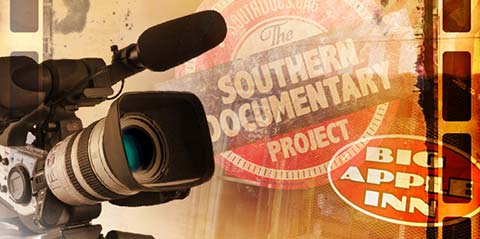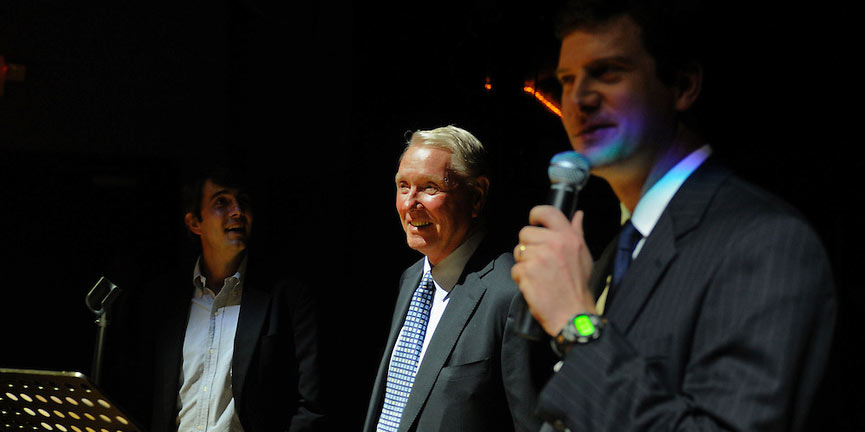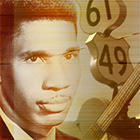


Rex Jones
The university’s work in researching, documenting and preserving the stories of Mississippi and the broader South finds its crossroads in the Southern Documentary Project.
A division of the Center for the Study of Southern Culture, affiliated with the Meek School of Journalism and New Media, SouthDocs works both in cooperation with other campus departments and in projects of its own initiative.
“Our mantra is to tell stories about the people, for the people,” said Joe York, SouthDocs documentary filmmaker and radio producer. “A lot of times, when people hear ‘university research,’ they expect it’s something they won’t understand. But our work is really in documenting the popular culture and engaging the popular culture.”
One recent project conceived by SouthDocs Director Andy Harper with filmmaker Rex Jones focuses its lens on Mississippians from a variety of backgrounds. The Mississippi Stories series has produced a dozen short films and one feature-length film.

Joe York
“Some of them are famous, and some are not at all,” said Jones, who has traveled the state and the Mid-South area to produce what he describes as “portrait films.”
“These are visual oral histories,” Jones said. “We’re seeing these people tell their own stories, instead of it being a presenter-led program where you have a host who talks.”
Subjects featured in the series so far include M.B. Green, a self-taught 80-year-old banjo maker and bluegrass musician from Louin, as well as better-known names such as Merigold potter Lee McCarty of McCarty Pottery.
Jones also traveled to Memphis to record the story of the Rev. Samuel “Billy” Kyles, a native of Shelby who was with Martin Luther King Jr. on the balcony of the Lorraine Motel when he was assassinated.
Each of the films is available to watch online, and Mississippi Public Broadcasting has expressed an interest in airing them as well, Jones said.
Making the connection between film projects and their audiences is as a critical part of SouthDocs’s mission, York said, likening the effort to that of agricultural outreach.
“We’re cultural outreach people,” he said. “We make these documentaries, and then we go out to film festivals and public libraries and conferences to share these films. Often, we bring the people that are in the films to these events, too, so that the general public has a chance to meet them.”
York’s own work has included some three dozen films for the Southern Foodways Alliance. The 2009 award-winning short film Smokes & Ears, about the landmark Big Apple Inn on Jackson’s Farish Street, was an opportunity to show how the restaurant served as both an incubator for local blues culture and as a safe house for organizers during the civil rights movement.
“The SFA is great at taking the mundane aspects of the culture and showing the role they played in the really big, pivotal moments in history,” York said. “We celebrate civil rights and we celebrate blues artists, but a lot of times, places like this helped make them possible.”
While such stories are the type that SouthDocs filmmakers can record and share as an expression of pride in Mississippi, their focus includes telling less-flattering stories, too.
In 2010, York worked with the Mississippi Innocence Project at the UM School of Law to produce a film about two men wrongfully convicted and ultimately exonerated. Mississippi Innocence showed how Kennedy Brewer and Levon Brooks spent a combined 30 years in prison for murders they didn’t commit, and how staff and students at the Innocence Project accomplished their release.
“That was a big part of the story—to show what these students here at the University of Mississippi did to really affect these people’s lives,” York said. “They’re not just sitting in a classroom and talking abstractly about the law. They’re actually making a difference.”
At the same time, the film sheds light on the failings in Mississippi’s criminal justice system that allowed the two men to be convicted in the first place, he said. “We feel like it’s our job to tell that story as well,” York said.
Regardless of the kind of light such stories shed on the state, SouthDocs filmmakers feel there is unparalleled value in hearing Mississippi’s stories told by Mississippians.
“All too often, our stories end up getting told by people from outside the region, but they’re best told from within,” York said. “Whether it’s film or radio or the work we do in the classroom, we’re using all the tools we have to weave a narrative about this place and hopefully shape the discourse about it as well.”



 {{video_url}}
{{video_url}}



